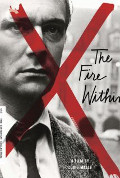
1963
Directed by
Louis Malle
103 minutes
Rated M
Reviewed by
Bernard Hemingway

Feu Follet, Le
Maurice Ronet plays a burnt-out playboy who having recovered from alcoholism finds that he has no desire to continue living and spends the running time of the film meeting up with old friends and lovers in order to see if they can offer him any reason not to do so in this Nouvelle Vague classic adapted from a novella by Pierre Drieu la Rochelle (who committed suicide in 1945 following accusations of anti-Semitism and collaboration with the Nazis) and updated form the original 1920s to the then present.
Malle’s film is steeped in the sensibility of the times and although evidencing an assured directorial hand the lugubrious existentialist ennui of its supposedly dissipated protagonist, underscored by Erik Satie’s melancholy music, today looks less credible than it would have at the time of its release, Ronet’s Alain seeming far too old to carry on with such self-indulgence let alone find so many acquaintances willing to give ear to his moanings about the sordidity of it all.
Ronet in the performance of his career is very good in the part and the film, which typically of the period draws much from the black and white location photography by Ghislain Cloquet, is a good example of period style but compromised by its literary posturing (Malle apparently identified heavily with the main character).
Want something different?





